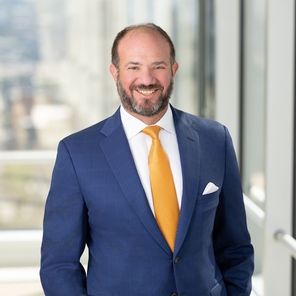
Employers Beware: Federal Government Continues its Laser Focus on Employment Tax Fraud
By Michael A. Villa, Jr. on October 27, 2021
-
 Michael A. Villa, Jr.
Michael A. Villa, Jr.
View Bio
According to the IRS Criminal Investigation annual report, there were 2,596 criminal investigations initiated in 2020, of which 298 were employment tax cases. In January 2021, the Department of Justice Tax Division noted “employment tax enforcement is among the Tax Division’s highest priorities.” A recent example of the government’s focus on employment tax fraud can be found in U.S. v. Christina Anglin (W.D. Okla. 2021). Ms. Anglin was the controller and CFO of a technology company in Oklahoma. As the controller, one of her responsibilities was withholding payroll taxes (Social Security and Medicare taxes and federal income taxes) and paying them to the IRS.
She was accused of failing to pay the IRS payroll taxes for the first through third quarters of 2018. She was also accused of approving thousands of dollars of business expenses, including salaries and bonuses, during the same period. On October 22nd, a federal jury found Ms. Anglin guilty of failing to pay the IRS $920,000 in payroll taxes that had been withheld from employees’ paychecks. It is important to note that a criminal conviction of failing to pay payroll taxes does not necessarily require that the employment taxes were used for personal expenses. One might be convicted for failing to pay payroll taxes even if the tax funds are used on other business expenses. The key takeaway from this concept is that absolutely no other expense (including legitimate business expenses and salaries) should be paid with payroll taxes that are required to be paid to the IRS.
Employment tax fraud such as this creates a ripple effect of problems for the government and other potentially innocent third parties. For example, the government gives credit to employee taxpayers for the money their employer allegedly withheld and paid to the IRS. The government treats these payments as if the employer stole the employee’s tax payments from the government. The government will then look to collect the unpaid employment taxes from the business and/or from one of the businesses’ “responsible persons,” if that person willfully failed to collect or pay the employment tax. The portion the government looks to collect from individual responsible persons is referred to as the Trust Fund Recovery Penalty (“TFRP”). A “responsible person” in the eyes of the IRS can potentially be a broad group of people (regardless of whether they are the “bad actor” who stole the employment taxes). For example, the IRS notes a “responsible person” may be:
For any questions on this or any other civil or criminal tax-related matter, please feel free to contact Mike Villa at (214)749-2405 or mvilla@meadowscollier.com.
She was accused of failing to pay the IRS payroll taxes for the first through third quarters of 2018. She was also accused of approving thousands of dollars of business expenses, including salaries and bonuses, during the same period. On October 22nd, a federal jury found Ms. Anglin guilty of failing to pay the IRS $920,000 in payroll taxes that had been withheld from employees’ paychecks. It is important to note that a criminal conviction of failing to pay payroll taxes does not necessarily require that the employment taxes were used for personal expenses. One might be convicted for failing to pay payroll taxes even if the tax funds are used on other business expenses. The key takeaway from this concept is that absolutely no other expense (including legitimate business expenses and salaries) should be paid with payroll taxes that are required to be paid to the IRS.
Employment tax fraud such as this creates a ripple effect of problems for the government and other potentially innocent third parties. For example, the government gives credit to employee taxpayers for the money their employer allegedly withheld and paid to the IRS. The government treats these payments as if the employer stole the employee’s tax payments from the government. The government will then look to collect the unpaid employment taxes from the business and/or from one of the businesses’ “responsible persons,” if that person willfully failed to collect or pay the employment tax. The portion the government looks to collect from individual responsible persons is referred to as the Trust Fund Recovery Penalty (“TFRP”). A “responsible person” in the eyes of the IRS can potentially be a broad group of people (regardless of whether they are the “bad actor” who stole the employment taxes). For example, the IRS notes a “responsible person” may be:
- An officer or an employee of a corporation,
- A member or employee of a partnership,
- A corporate director or shareholder,
- A member of a board of trustees of a nonprofit organization,
- Another person with authority and control over funds to direct their disbursement,
- Another corporation or third party payer,
- Payroll Service Providers (PSP) or responsible parties within a PSP,
- Professional Employer Organizations (PEO) or responsible parties within a PEO, or
- Responsible parties within the common law employer (client of PSP/PEO).
For any questions on this or any other civil or criminal tax-related matter, please feel free to contact Mike Villa at (214)749-2405 or mvilla@meadowscollier.com.
